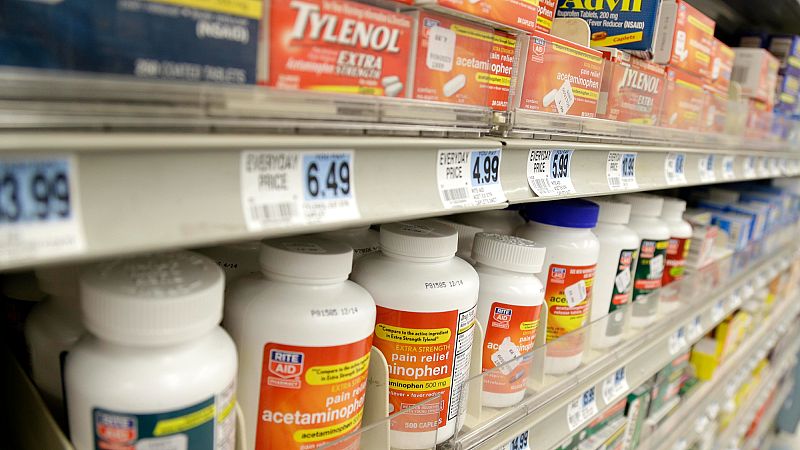
On Monday, the White House stated that it had identified a connection between the use of paracetamol in pregnancy – marketed in the US as Tylenol – and autism in children.
US President Donald Trump went further, claiming that Tylenol "is no good" and that pregnant women should "fight like hell" to avoid taking it. He had teed up the news over the weekend, saying “I think we found an answer to autism”.
The EMA stated that there is no evidence to support these claims. “There is no new evidence that would require changes to the current EU recommendations for use,” an agency spokesperson told Euronews.
In 2019, the Agency reviewed studies on the neurodevelopment of children exposed to paracetamol during pregnancy and concluded that the findings were inconclusive, with no evidence of a link to neurodevelopmental disorders.
The EMA now states that extensive data from pregnant women who used paracetamol during pregnancy shows no increased risk of malformations in the developing foetus or in newborns – information already included in product labelling in the EU.
“When needed, paracetamol can be used during pregnancy. However, the advice is to use it at the lowest effective dose, for the shortest possible time and as infrequently as possible,” the spokesperson added.
As with all medicines, the EMA and national competent authorities in the EU carry out continuous safety monitoring of products containing paracetamol.
The announcement from the Trump administration followed a pledge by US health secretary Robert F. Kennedy Jr in April to identify the cause of autism by September.
As Euronews previously reported, the United States’ announcement also prompted backlash from child health experts.
Researchers widely believe autism is caused by a combination of genetic and environmental factors, including advanced parental age, prenatal exposure to air pollution, and low oxygen levels around the time of birth.







